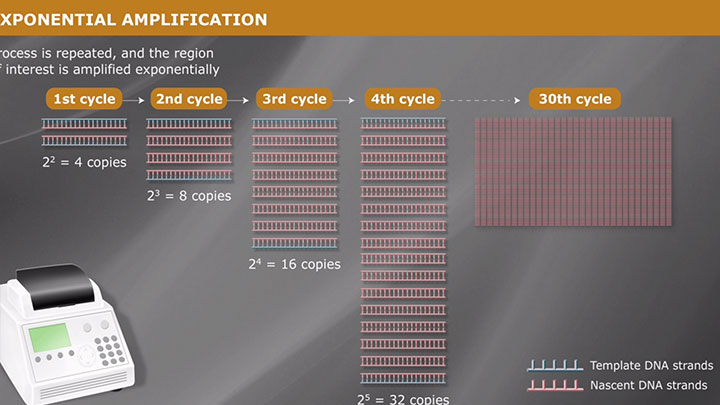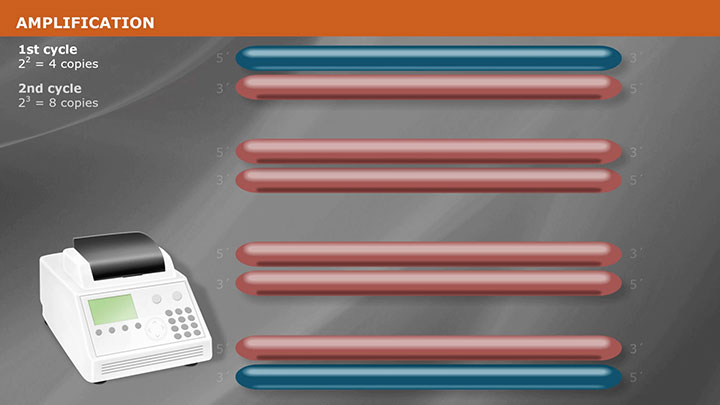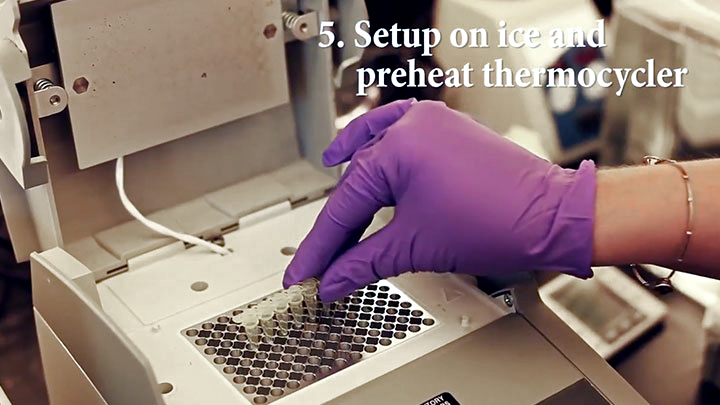Types of PCR
Script
Depending on your template and starting material, the base composition of your target, fidelity requirements, and your downstream application, you may want to consider one or more of the following aspects of PCR.
High-fidelity PCR uses polymerases that effectively check for and correct errors that arise from misincorporation of a base. The result is a dramatic reduction in the amount of errors in your final DNA product. NEB's Q5 high-fidelity DNA polymerase offers greater than 100 times the fidelity of standard Taq DNA polymerase.
Multiplex PCR involves the simultaneous amplification of two or more primer sets in a single reaction. Because of the increased number of primer sets in the reaction, proper primer design is critical for the success of your Multiplex PCR experiment. Specialized enzyme formulations can also increase the success rate of your multiplex PCR. NEB offers both Taq-based and Q5-based formulations appropriate for use in Multiplex PCR.
Fast PCR is the combination of optimized primers, protocols, and polymerases. Fast thermal cyclers are available on the market. These cyclers have higher ramp rates, but oftentimes that's not the rate limiting step and a more cost effective way of reducing your overall protocol time is to simply optimize your protocol and your polymerase. First, primers are designed with higher annealing temperatures that allow for the combination of your extension and annealing temps so often referred to as two step PCR. Next, polymerases that can tolerate fast extension times are added to your reaction. Compared to the standard one minute per kilobase extension time of Taq DNA polymerase, Q5 high fidelity DNA polymerase can tolerate extension times as short as approximately 10 seconds per kilobase.
Combining two step protocols with short extension times can dramatically reduce the amount of time it takes to get to the best part of your PCR experiment. Your results.
At NEB, our goal is to use our understanding of enzymology, and our dedication to high quality products, to provide reagents for all of your PCR needs. Visit us online neb.com to find our polymerase selection tool where you can see our full range of reagents.
Related Videos
-

Overview of PCR -

Overview of PCR Cloning -

5 Tips for Setting Up Your PCR

